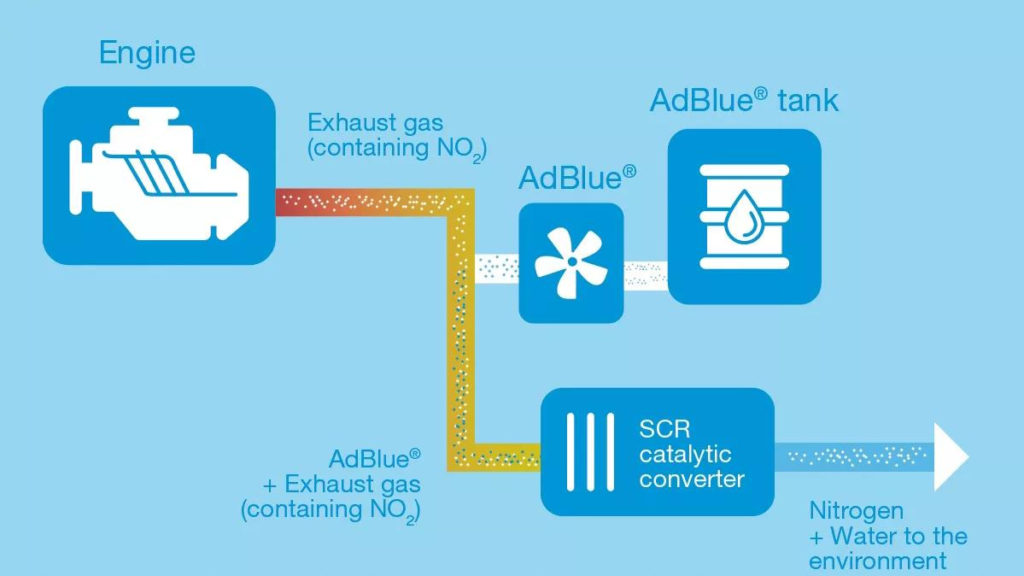AdBlue®
MAKING A GREEN ENVIRONMENT in SAUDI ARABIA
The #1 reliable choice for ZERO Carbon Emission in Germany is now in Saudi Arabia
Stricter standards are driving cleaner commercial and private vehicles across Saudi Arabia.
For years, Euro IV, V, and VI regulations have progressively tightened emission limits, particularly for nitrogen oxides (NOx) from commercial vehicles. AdBlue® by BASF, a key component in SCR systems, effectively reduces NOx emissions, helping to create a cleaner future for European transportation.
How does AdBlue® by BASF work?
AdBlue® Explained: Cleaner air from your diesel engine
AdBlue® is a non-toxic and colorless liquid that plays a vital role in reducing harmful emissions from modern diesel engines.
Here’s how it works:

- Made for clean air: AdBlue® is a high-purity solution of 32.5% urea in deionized water. This precise mixture is crucial for optimal performance and to prevent damage to your vehicle's Selective Catalytic Reduction (SCR) system.
- Trapping harmful pollutants: The ammonia gas then enters the SCR catalyst, where it reacts with nitrogen oxides (NOx), a major pollutant in diesel exhaust. This reaction converts NOx into harmless nitrogen gas (N2) and water vapor (H2O), both of which are natural components of clean air.
- The science behind the reduction: During engine operation, AdBlue® is injected into the exhaust stream just before the SCR catalyst. The heat in the exhaust triggers a chemical reaction, decomposing AdBlue® into ammonia.
- Reduced emissions, cleaner planet: By effectively reducing NOx emissions, AdBlue® helps diesel vehicles comply with stricter emission regulations and contributes to cleaner air for everyone.
Improved Fuel Efficiency with Clean Emissions
While Selective Catalytic Reduction (SCR) systems with AdBlue® by BASF require a slight increase in engine temperature to optimize NOx reduction, this process delivers significant fuel economy benefits.
Optimized Combustion
The hotter exhaust gas temperature promotes more complete fuel combustion. This means less unburned fuel is wasted, leading to increased efficiency and reduced fuel consumption by up to 5%, without compromising engine performance.
Reduced Soot Formation
Higher temperatures also aid in breaking down soot particles, a major contributor to engine wear and air pollution. This translates to cleaner exhaust and potentially extended engine life.
